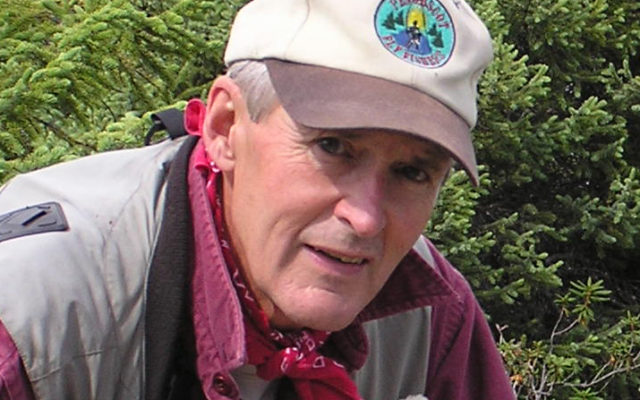
Maine hunters face shrinking access to private land
By V. Paul Reynolds
A fellow deer hunter and friend shared this sad story with me. A few years ago he sold his home in a Bangor suburb to his brother. The brother assured my friend that hunting privileges would continue in the acreage that my friend formerly owned. And he did for a couple of years, tagging a number of deer.
Subsequently, the brother sold the home to a couple from Massachusetts. The buyer from Massachusetts assured my friend’s brother by a gentleman’s agreement that hunting privileges would continue to be allowed in keeping with precedent.
No such luck.
“The new owner,” said my crestfallen friend, “not only advised that I could no longer hunt in my old spot, but that I also could not pick up my tree stand.”
The Bay Stater said that he would take down the stand in his own good time and let my friend know when he could pick it up. So far that call has never been received. So much for gentlemen’s agreements.
This spring while turkey hunting on what I thought was unposted land, I got a dismissive email from the landowner advising me to “stay off his land.”
And this fall, while bow hunting for deer, I had two different landowner encounters. As I was heading into a patch of unposted woods that I have hunted for 50 years, a woman stopped her car, rolled down the window and advised that it was her land on which I was hunting.
She said her boys were hunting there, too, amid the 60 acres and she was worried that I might shoot one of them with my bow.
“I’d rather that you not hunt my land,” she said matter-of-factly.
Normally, in these situations, I politely acquiesce and walk away. Not this time. I introduced myself, told her my background, that I had been a hunting safety instructor with years of deer hunting experience and assured her that I was not a threat to her sons.
Then I unabashedly pleaded for a reconsideration, even stooping to play the old age card. She thought for a minute and then, to my surprise and delight, she said, “Ok, but please be careful.”
A week later, returning empty-handed from a bow hunt, a car in front of me struck and killed a young deer on the road beside a horse pasture. The driver did not want the deer and offered it to me, which I accepted and then phoned the local police.
While awaiting the police, I began field dressing the deer in the dark alongside the road and the pasture. A truck stopped, a window rolled down and an agitated woman said, “What are you doing?”
“Dressing this deer,” I said. To which she replied, “I don’t want you hunting in my pasture.”
After explaining that the deer was a roadkill and that I had not been, nor would I want to hunt in her pasture with her horses, she calmed down and drove off.
Other dedicated deer hunters no doubt have similar stories. This is not how it used to be. With more than a half century of deer hunting under my belt, my collective experience tells me that the trend is unmistakable and is not good — that Maine’s fabled hunting legacy is in dire peril.
What’s the answer? I wish that I could be certain, not only for myself, but moreover for my grandchildren and future generations.
Going way back, the Maine Department of Inland Fisheries and Wildlife has had a game warden landowner relations coordinator. The coordinator’s job was to talk with landowners and fish and game clubs and make the appeal for open land and responsible behavior by hunters in an effort to safeguard our hunting legacy.
There was a decade, not so long ago, that the department gave landowners those red “Hunt by permission only” signs, which included a space for the landowner’s name and phone number. Those signs were a step in the right direction, so why have they seemingly gone by the wayside?
In Maine, land access is the key to preserving our hunting legacy. So whatever it takes, whether it is more funding or staffing for Inland Fisheries and Wildlife’s landowner relations program, and more aggressive outreach to the public and the hunting community, more needs to be done in this regard.
As it now stands, we are losing ground.
The author is editor of the Northwoods Sporting Journal. He is also a Maine Guide and host of a weekly radio program “Maine Outdoors” heard Sundays at 7 p.m. on The Voice of Maine News-Talk Network. He has authored three books. Online purchase information is available at www.sportingjournal.com, Outdoor Books.